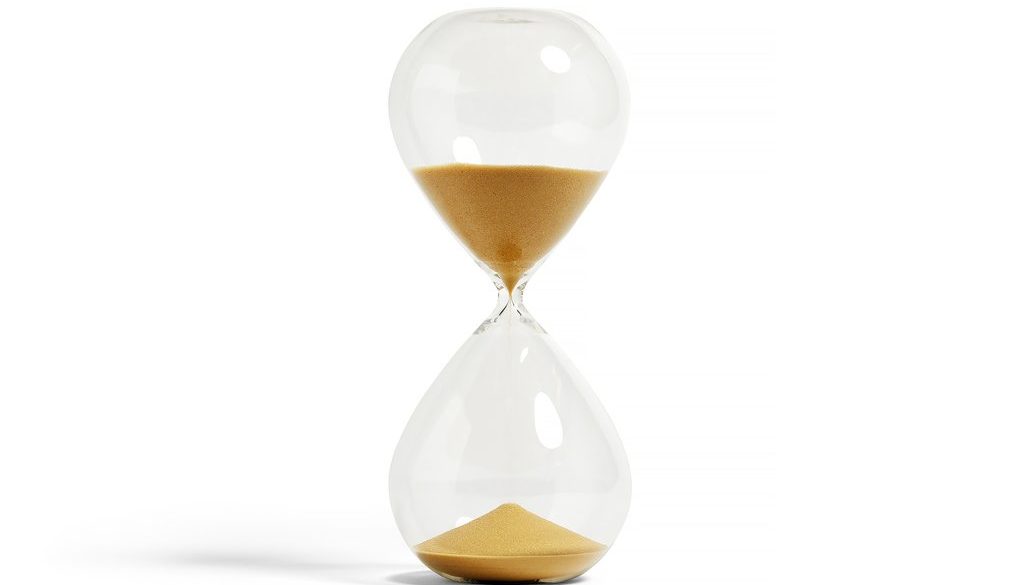Sand Thru the Hourglass

Atlanta, GA
January 9, 2021
Last week, we recalled Dr. Kurt Richebächer’s idea that we should spend time enjoying the good things in life, rather than merely writing about them.
I agree, and promised that this year, that is what we’ll do. But that raises several questions.
What are the good things? How should they be enjoyed? With whom? And when?
Which aspirations, occupations, and situations…what affirmations, declarations, or proclamations…bring us health, wealth, fulfillment, and joy?
This week, we took down the tree, dumped the last of the egg nog, dissembled the Nativity scene, and rustled ourselves from our holiday repose. Monday, it was back to the salt mines.
David returned to school Thursday. Tomorrow Alexander drives back to Auburn, where he will begin his sophomore year. And, for the first time since matriculating, he will ostensibly attend class in an actual classroom. We’ll see.
We’re back in our daily routine, nestled at home, shuffling between the computer and the kitchen, and from call to call. We occasionally shuttle David to basketball practice, which he resumed a couple nights ago, and to his games, which begin today.
Meanwhile, like a Rottweiler biting our pant leg to keep us from scaling the asylum wall, 2020 just won’t let go.
A few days ago, a horde of hooligans marched to the Capitol, took some selfies, rested their feet on the House speaker’s desk, and placed their horned chieftain upon the Senatorial throne.
So, in essence…after a soothing Christmas break…things have gone back to “normal”.
But where do we want them to go from here? There must be better uses of our time and attention than to wallow in the incessant lunacy by which we seem perpetually surrounded.
I recently read a post in which the thirty-four year-old author assumes he will live to be ninety, and then calculates how many “units” of different activities have occurred…and remain…in his life.
He contemplates how many pizzas he’s eaten, and how many slices he has left. How many Red Sox games he attended, and how few remain. Annual swims in the ocean he’s completed, and those yet to come. The number of Super Bowls he’s seen, and the dwindling amount he has left.
His broader point gave me pause, particularly when he showed how easily he could plot on a single page the number of weeks and months in a ninety year life, and how quickly its pleasurable events could be crossed off.
Most of the pastimes he charted recurred at regular intervals, and would be distributed relatively evenly throughout his life. It was interesting, but not particularly surprising or earth-shattering.
But what took me aback was his depiction of essential relationships that, like decorum at an Irish wake, are significantly front-loaded.
Before we graduate high school, at least 90% of our days include at least some time with our parents. Then, we go to college, move away, and meet new people.
I did that when I was seventeen, when I left Tampa for Atlanta. After graduating from Georgia Tech, I moved further away, and to various places. To Sacramento, San Francisco, Philadelphia, back to San Francisco and, eventually, back to Atlanta, where we have lived since.
But from the time I first arrived here as a college freshman, I’ve probably seen my parents no more than four to five times a year, for four to five days at a time.
In more recent years, that frequency has declined considerably. The last half decade, I’ve seen them no more than a couple times annually. Had we not given ourselves the gift of a last minute Christmas visit, we’d have gone all of last year without doing so.
By his calculations, the author of the post estimated that when we graduate high school, about 90% of the time we will ever spend in person with our parents has already lapsed.
That of course can vary, and is largely a function of whether parents and kids live in the same city. My brother, who lives a few miles from our folks, likely has a greater share of his total days with them ahead of him than I do.
The author, who like me moved away for college and always lived elsewhere, figured that in his circumstance, and at his age and that of his parents, he is already within the last 5% of the total time he will ever spend with them. Based on those assumptions, I probably have less than half as much remaining with mine…if I am smart enough to use it.
As a parent myself, I realize that sand is pouring from both halves of the hour glass. Our older son is in college. Our younger one will be there in a couple years. It is startling to consider that almost 90% of our days with them may already have passed.
Of course, that’s not all bad. If we are destined for too many future days with our sons, that could be a disconcerting harbinger of their ultimate prospects…and of ours.
Besides, just because fewer days are yet to come need not mean that the best of them aren’t. Much as I enjoyed being raised by my parents, the most enjoyable times came after I joined them as an adult. My parents, as has been said of so many others, knew absolutely nothing when I was 17. By the time I was 21, I was amazed how much smarter they’d become in just four years.
Anything can happen, and at any time. The future is a closed book. We can only discover it one page at a time…and we know not how many are left.
But if we’ve done our jobs half as well as our parents did theirs, my wife and I have plenty of joy…even if we have inadequate time…to look forward to with our adult children. To amplify the blessing, we’ll be able to appreciate it with each other.
Such occasions and opportunities, to answer our earlier question, are the good things. And we have a sense how they should be enjoyed: as often as possible, without being taken for granted, and with those we love.
JD



